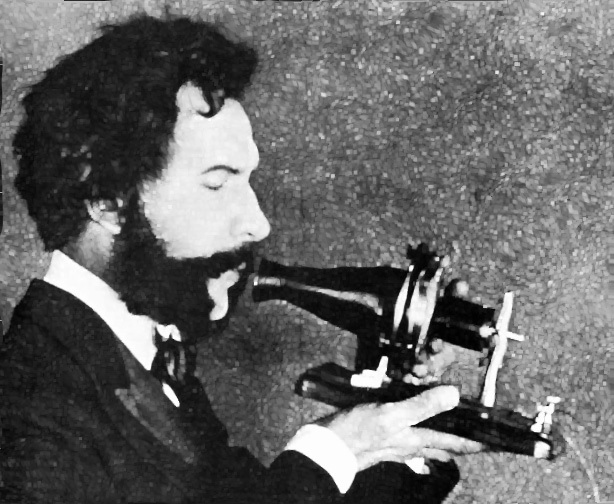Telecom Informer
by The Prophet
Hello, and greetings from the Central Office!
All of a sudden, the world has dramatically changed and, as of this writing, we're suddenly back to a Cold War footing. For nearly all of my adult life, the world has been getting smaller. I have never thought twice about flying over Russia, or even through it (while I was living in Beijing, one of the best and cheapest ways to fly to Europe was via Moscow on Aeroflot). Now, quite suddenly, each option has become both impossible and almost unthinkable.
This leaves me wondering what the state of telecommunications will become. Many authoritarian countries allow open and unfettered access to telephony (while often also censoring the Internet). In fact, some such countries are even regional telecommunications hubs. They're definitely employing surveillance tactics, but these are also countries with the resources to acquire and use software (such as Palantir) to identify surveillance targets. Other countries, such as the Democratic People's Republic of Korea, sharply limit international telecommunications capacity. This is done both to limit interactions with people outside of the country and to ensure that every call can be monitored in real-time.
One of my favorite things to do in middle school during my lunch break when calling from the payphones (I was always calling something or somewhere from the payphones - often small, obscure airlines to ask for copies of their timetables to be sent) was to make international directory assistance calls. Back then, international calls were connected via satellite after analog microwave hop to the AT&T Roaring Creek Station satellite center in Pennsylvania. To call international directory assistance, you'd call an AT&T operator (by dialing "00") and request directory assistance in the given country. The operator would get you on the line with a directory assistance operator in the other country, drop off the line, and you could then do whatever.
Now, this could be a great way to Blue Box. You could seize a trunk in mainland China and call outbound from there to anywhere in the world, courtesy of China Telecom (of course, it was a double satellite hop and the quality was terrible, but it was possible). Although Israeli directory assistance was immune to Blue Boxing (they had effective countermeasures), the phone lines were apparently staffed by bored military conscripts. They were young, and they weren't strictly supervised. We would sometimes add them to a conference call full of hackers and phreaks and they'd just roll with it, telling us about their lives in Israel.
I liked calling Bulgaria directory assistance in Sofia. They put you on hold forever, so sometimes the AT&T operator would just drop off and leave you on hold with them. They'd play a recording in three languages (Bulgarian, Russian, and English) saying "Hold and operator will answer." I'd call up, get put on hold, and hand the phone to a random kid in the hallway. Of course, they didn't know that Bulgaria was a separate country, so they'd think I'd put them on the line with Russia. The "on hold" recording sounded positively Soviet. It also didn't help that Bulgarian directory assistance operators were particularly curt and abrupt.
The one country that was really hard to call was the Soviet Union. There were only a handful of available trunks, and directory assistance calls used the same trunks as any other call being placed to there. Although most countries could be direct-dialed, the Soviet Union couldn't be. To make a call, you'd first call the AT&T operator, and you'd have to schedule a time where they'd try to get through. They'd first call you back at whatever number you gave them and, once they had you on the line, they'd make the call when the trunk was free. So, imagine a room full of KGB analysts in Moscow and a room full of NSA analysts in Pennsylvania, all listening intently while you asked a Soviet directory assistance operator for the phone number of "I. P. Freely" and that's probably a pretty accurate picture of what I was doing. I'm honestly surprised the FBI never showed up at my middle school to ask me to knock it off.
Through free directory assistance calls, I was able to get some phone numbers of McDonald's locations internationally, as well as some random Subway locations in Australia. It was always good fun on c0nfs to call up a Subway "down under" and quiz them about the menu. If you got them during a slow time, they were good sports about it (as Aussies always are). They'd shoot the breeze with you until a customer came into the store. McDonald's locations were harder because these were always busy and it was usually the manager answering. They didn't have time for chit chat; you'd have to pretend you were calling from headquarters with a business question in order for them to spend any time talking with you, and they'd hang up on you immediately when they realized it was a prank call.
One popular location for Blue Boxers to call was Scott Base, Antarctica. A phreak who had worked at McMurdo Station in Antarctica put the Scott Base phone numbers into a text file that circulated on BBSes, and one of the phone numbers was the bar at the station. McMurdo and Scott Base are adjacent to one another, and the summer population is over 1,000 people. Both McMurdo and Scott Station have a bar, and if you called the phone at the Scott Station bar on a busy night, you'd get to talk to everyone! People working in Antarctica are busy, but they were exceptionally friendly on their off hours and they were seemingly happy to talk to anyone who isn't one of the handful of people they already knew. I'm sure that the Chinese government was puzzled by all of the satellite time used to call Antarctica.
I don't often talk about the past, but it's important to realize that, not so long ago, there were real and significant barriers to being able to communicate with people all over the planet - something we take for granted today. Today's world is so hyper-connected that it's difficult to appreciate how difficult and expensive it was for ordinary people to connect with one another, just because we lived in countries with different political ideas. Long before I began exploring the world physically - visiting 73 countries and territories at last count - I was exploring it virtually by phone. There can still be significant barriers to physical travel, but even as late as the 1980s, the barriers to making phone calls were nearly as high (it could take several days to successfully get a call through to the Soviet Union).
Many readers have grown up in today's world where borders barely exist and where communication has increasingly few barriers. I'm honestly not sure what the future looks like. I do think the more that we talk to one another, the less power that centralized propaganda can hold over us. Propaganda works - whether it's CNN, MSNBC, Russia Today, or CCTV. However, person-to-person communication is one of the few things that can effectively break through propaganda, and this is one of the reasons why governments try so hard to limit it. I personally hope we don't return to the Cold War of telecommunications.
And with that, I wish you a peaceful summer. I'll be at HOPE in New York in July. As of this writing, my formal participation is not yet confirmed, but I hope to see all of you in a wonderful new venue that I'm really excited to experience. Until then, stay safe, and don't forget your Red Box!

